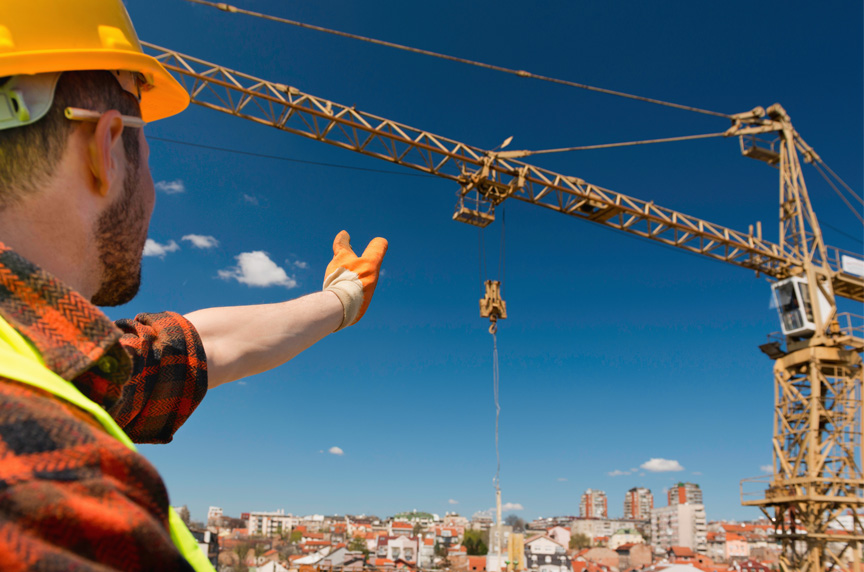Stories you may like
Crane Operator
We are looking for a crane operator to be responsible for operating various types of cranes, from stationary to traveling overhead cranes, and truck cranes. The crane operator’s responsibilities include knowledge of lever and pedal control, driving cranes to the worksite, setting up the manufacturer’s operator’s manual, inspecting the crane for safety daily, and operating the crane under general supervision. You should be able to lift and lower materials with precision and transport heavy equipment to worksites.
To be successful as a crane operator, you should operate cranes efficiently, take complete charge of all safety, clean and maintain the hoisting mechanisms, and handle the process of job billing. Ultimately, a top-notch crane operator should set and maintain a standard of accuracy, be able to work in extreme weather conditions, and operate the crane according to verbal, written, or signal instruction.
Crane Operator Responsibilities:
- Operating the crane under supervision.
- Inspecting the crane to ensure its safety.
- Performing routine maintenance.
- Carrying tools for running repairs.
- Understanding and executing the job billing process.
- Driving the crane to a worksite.
- Wearing PPT safety equipment.
- Cleaning and maintaining the crane hoisting mechanism.
- Using lever and pedal controls efficiently.
- Setting up the manufacturer’s operator manual.
Crane Operator’s Requirements:
- High school diploma or equivalent.
- CDL Class B license.
- CDL Class A license preferred.
- Must possess NCCCO or equivalent crane operator certification.
- Minimum of 4 years industry experience.
- Knowledge of OSHA Regulations, and ANSI Standards in crane operations.
- Proficient in oral and written communication skills.
- Pass drug test, background, and medical check.
- Daily and monthly equipment inspections.
Key Responsibilities of a Crane Operator
A crane operator's primary responsibilities include the operation of various types of cranes, from stationary to mobile or tower cranes. They are tasked with setting up the cranes, ensuring their stability before operations begin, and inspecting them for safety compliance. During operation, operators must carefully monitor the crane's capacity and movement while coordinating with ground staff via radio or hand signals to ensure safe handling of loads. Post-operation responsibilities include maintenance checks and reporting any mechanical issues or hazards.
Duties of a Crane Operator
The specific duties of crane operators encompass a range of tasks that include but are not limited to the following:
- Inspecting cranes for mechanical issues and performing regular maintenance to ensure functional safety and compliance with regulations.
- Calculating crane capacities and weight to prepare for operations and prevent overload incidents.
- Operating crane under general supervision and making appropriate judgments in lifting operations to ensure safety of all personnel and materials involved.
- Adhering to stringent safety protocols, including checking weather conditions and maintaining clear communication with other construction site workers.
- Recording and maintaining proper documentation of operations and maintenance logs.
Education and Certification Requirements
To qualify for a position as a crane operator, candidates typically need a high school diploma or equivalent. However, the most crucial qualifications are the specific certifications related to the type of crane operated. These certifications are usually offered through recognized vocational schools or apprenticeship programs that provide both classroom instruction and hands-on training. Common certifications include a Commercial Driver's License (CDL) for mobile cranes and certified training from accrediting bodies such as the National Commission for the Certification of Crane Operators (NCCCO).
Additionally, prospective crane operators should have good mechanical aptitude, precise communication skills, and strong spatial abilities. Experience in similar roles or industries can also be beneficial.
Conclusion
Crane operators are indispensable in many industries, requiring a unique blend of technical knowledge, practical skills, and strict adherence to safety regulations. The role demands high responsibility and accuracy, making the education and certification components critical for ensuring competence and safety on the job. Aspiring crane operators must thoroughly understand and respect the machinery they operate, always prioritizing safety and efficiency on the job site.







User's Comments
No comments there.